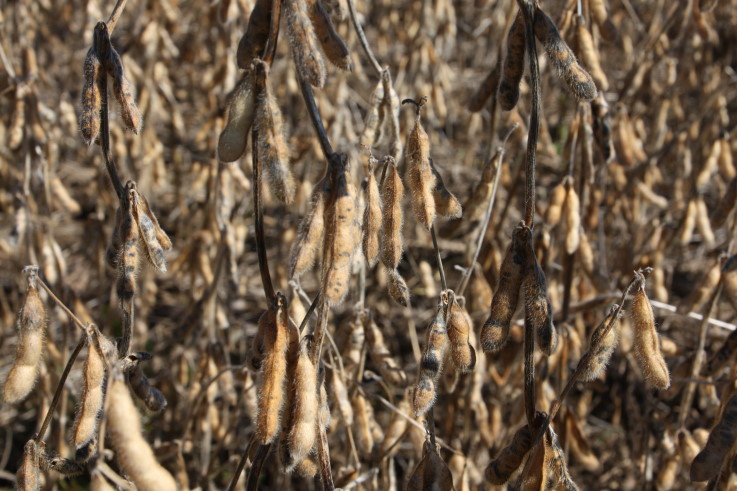
Agricultural News
Soybean Farmers Encouraged to Safeguard Export Markets
Wed, 17 Sep 2014 10:18:18 CDT

As the soybean and corn harvest hits full stride in much of the nation's growing regions, the farmer-leaders of the American Soybean Association remind farmers to do their part by taking extra care to keep biotech traits that are not yet approved in key export markets out of normal grain marketing channels. For those soybean farmers that also produce corn, this includes keeping biotech corn traits that are not yet approved in China, such as MIR 162 and Duracade, out of normal commodity streams so that U.S. soybean shipments to China aren't at risk of rejection due to the presence of unapproved corn traits.
"China is U.S. soy's biggest customer, buying more U.S. soybeans than all other foreign customers combined," said ASA President and Corning, Iowa, farmer Ray Gaesser. "With a record U.S. soybean crop ready for harvest, we need to ensure that U.S. soy exports aren't disrupted. Farmers growing biotech corn traits that aren't yet approved in China need to follow stewardship agreements carefully, ensure thorough equipment clean-out, and only market their grain in approved domestic channels."
In the current marketing year, China has imported nearly one-third of all U.S. soybeans produced and U.S. soybean exports to China total over $14 billion.
The National Corn Growers Association (NCGA) has been working with Syngenta and reminds farmers about the need to keep Duracade technology out of export channels. NCGA also has urged farmers to recheck seed plots grown on their farms to verify the traits grown and to ensure that traits that are unapproved in China are stewarded to appropriate channels.
"As American farmers, we are particularly fortunate to work with so many innovative technology partners, each of whom provides us with revolutionary technology in the field. Unfortunately, some approval systems around the world, including China's and the European Union's, aren't working as timely as we'd like," said Gaesser. "Because of this, farmers have to take extra steps especially now during the harvest season to be sure that seed bearing these traits doesn't find its way into their commodity grain loads. It's also worth noting that the margin of error in this case is extraordinarily slim. Only a few kernels of corn with unapproved traits are more than enough to reject the entire shipment."
The reminder comes following several export disruptions caused by the rejection of grain shipments in foreign markets upon the detection of unapproved biotechnology traits.
"We remain frustrated with the pace and murkiness of regulatory approvals in some of our export markets, but we also recognize that the rules are the rules in those markets, and we have to respect them. That means that we simply can't send grain with traits that aren't yet approved," added Wade Cowan, a producer from Brownfield, Texas, and ASA's first vice president. "Every necessary precaution needs to be taken by originating trait providers and seed companies, and then on our farms, at the elevators, at terminals and at ports, to prevent seed with unapproved traits from entering the supply chain. The longer term answer, of course, is a more efficient and transparent system of foreign approvals , and a global policy to allow for the low level presence of biotech traits that are fully approved in a producing market but not yet approved in an export market."
ASA is working to improve the marketability of U.S. biotech crops both individually as an organization and in cooperation with other farm, trait, seed, grain, and grain processing organizations through the U.S. Biotech Crops Alliance.
WebReadyTM Powered by WireReady® NSI
Top Agricultural News
More Headlines...



















